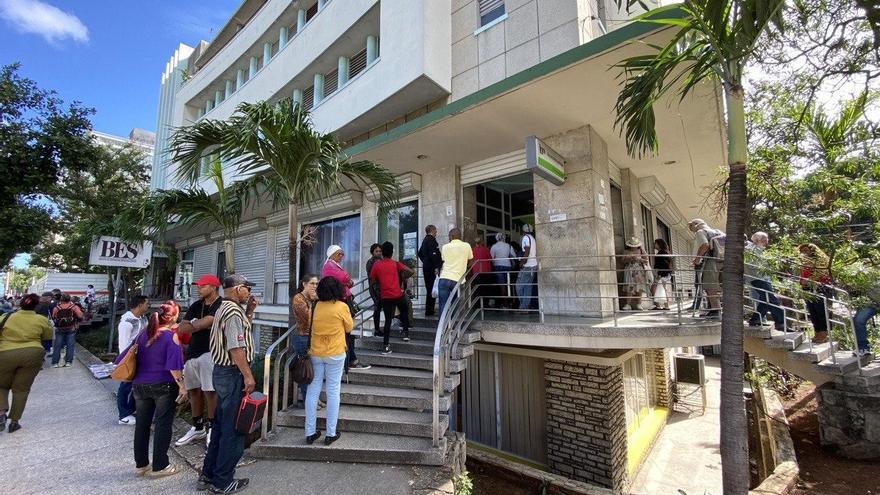
![]() 14ymedio, Luz Escobar, Havana, August 12, 2020 — Along with hoarders and coleros — people paid to wait in line — unofficial money changers are on the police’s radar. They are after individuals who exchange dollars and other hard currency on the black market. Raids began after digital classifieds began appearing on internet portals, where foreign currencies are one of the most frequently listed types of merchandise.
14ymedio, Luz Escobar, Havana, August 12, 2020 — Along with hoarders and coleros — people paid to wait in line — unofficial money changers are on the police’s radar. They are after individuals who exchange dollars and other hard currency on the black market. Raids began after digital classifieds began appearing on internet portals, where foreign currencies are one of the most frequently listed types of merchandise.
A house in Central Havana and another in Playa were the scenes of raids carried out by the Ministry of the Interior in which agents found cash in a variety of currencies totaling almost 1.3 million Cuban pesos according to a nightly news report on Tuesday.
Maylén Díaz Porro, operational officer with the Department of Technical Investigations, pointed out on state television that one of the alleged perpetrators had used the Revolico online sales platform to promote the sale of euros and dollars. Díaz added that the individual had also been visiting shopping centers, offering to “change money.”
According to the report security forces siezed 20,215 dollars, 12,097 convertible pesos, 445,350 Cuban pesos and 1,450 euros in the operations. Government sources added that agents also found small quantities of bills in other currencies.
Another officer explained that, during a search of the house in Playa, police found thirty-nine hundred-dollar bills, which were determined to be counterfeit by an “expert examination” carried out in the laboratory.
The report points out that the persons under investigation “have no employment relationship with the Cuban state yet have a high quality of life.” During the search agents confiscated “some records that suggest smuggling of imported merchandise through the use of mules.” Indications are the goods were later resold on the island, which is experiencing a growing shortage of consumer goods.
Armando Torres Aguirre, deputy director general of the National Bank, believes underground currency exchange has an economic impact on the country. He points out that Legal Decree 362 defines which financial institutions are authorized to carry out currency trading activities. The law specificies only “universal banks” and exchange bureaus such as Cadecas.
Cadecas was founded in 1994, after the possession of dollars was decriminalized. In recent years the number of its branches throughout the country has declined. Those that have remained open often do not have cash.
Banks remain an alternative for exchanging hard currency but long lines to make deposits, apply for a debit card or use other services mean they are not a viable option for the many customers who prefer to avoid long waits by turning to the underground market despite the risk that this entails.
On Tuesday the state newspaper Juventud Rebelde reported that the district attorney’s office in Ciego de Ávila province is preparing to try three individuals for “illegal trafficking of foreign currency and national currency.” All three are allegedly repeat offenders.
There are ninety-seven groups made up of more than 800 workers who, together with officers from the Armed Forces and the Ministry of the Interior, are looking into eighty-four retail establishments that have been identified as “vulnerable.”
________________
COLLABORATE WITH OUR WORK: The 14ymedio team is committed to practicing serious journalism that reflects Cuba’s reality in all its depth. Thank you for joining us on this long journey. We invite you to continue supporting us by becoming a member of 14ymedio now. Together we can continue transforming journalism in Cuba.
